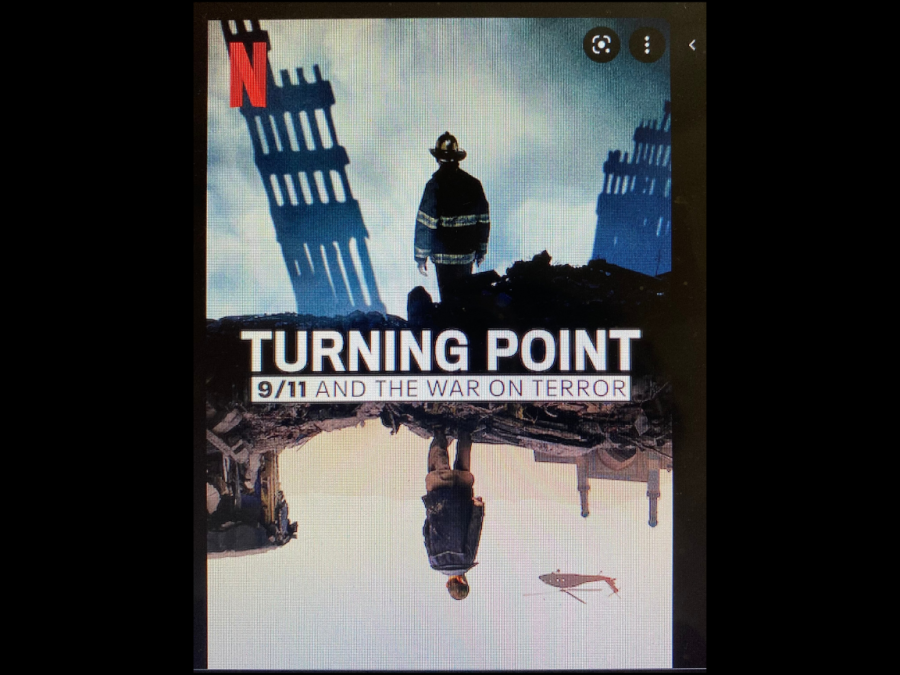Netflix documentary explains the history of relations between the U.S. and Afghanistan
On Sept. 1, Netflix released a new docu-series called “Turning Point: 9/11 and the War on Terror.” This docu-series discusses about 9/11 and the events that led up to it.
Netflix recently released the original documentary “Turning Point: 9/11 and the War on Terror” in honor of the 20th anniversary of the terrorist attacks that took place in New York and Washington D.C. on Sept. 11, 2001.
The docu-series, which premiered Sept. 1, is not only meant to showcase the events of 9/11 and the after-effects, but to fully explain the relationship between the United States and Afghanistan.
The docu-series is arranged to follow a detailed timeline, contained into five hour-long episodes, beginning in the 1980s, when Afghanistan was occupied by the Soviet Union, and continues all the way up to 2021 when the Taliban recently took control of Afghanistan again.
The docu-series used recorded news coverage for visual context, while interviews with witnesses, past government officials, authors, ex-taliban leaders and important figures narrated and explained all the information and events being shown in the documentary.
The first couple of episodes detail the terrorist attacks and the history of American involvement in Afghanistan in the 1980s and 1990s, along with warning signs that arose prior to 9/11, but were ignored by government agencies due to internal rivalries.
During the 1980s and 1990s, America made efforts to separate Soviet involvement from Afghanistan (do not confuse it with the idea of Americans trying to save Afghanistan) while several militant groups rose up within Afghanistan. The most notable at the time was the “Mujahideen.”
The Mujahideen were described in the series as Afghans who rose on the basis on Islam in order to free their country from Soviet occupation. This was a militant group that impacted Afghanistan before the uprising of the Taliban and Osama Bin Laden.
It was fascinating and eye-catching to see how openly some of the interviewees talked about the government’s barbaric methods of finding information on Al-Qaeda and Osama Bin Laden. Some of these barbaric methods included using Guantanamo Bay, specifically to violate human rights, torturing detainees to extract information and ransacking Muslim businesses that were suspect to terrorism.
One missing aspect of the docu-series, though it may be meant for a separate documentary, is the effect 9/11 had on Muslim Americans.
The docu-series briefly touched on a few events that show this effect.
The American government’s decision to target Muslim businesses to see if they were linked to terrorism, and protests against the construction of a Mosque close to ground zero, which is the area where the twin towers once stood.
The way America treated its own citizens (and refugees) is a heavy reflection on the actions taken overseas.
Along with that, this hatred formed towards Muslim Americans is still ongoing, it was not a brief phase in American society.
A truthful overview of past events, regardless of how negative they reflect on people, organizations, or countries, is interesting, but it is also incredibly important.
It’s important to develop an understanding and a balanced perception of current events.
Despite this, the docu-series was still interesting to watch and highly recommended.

